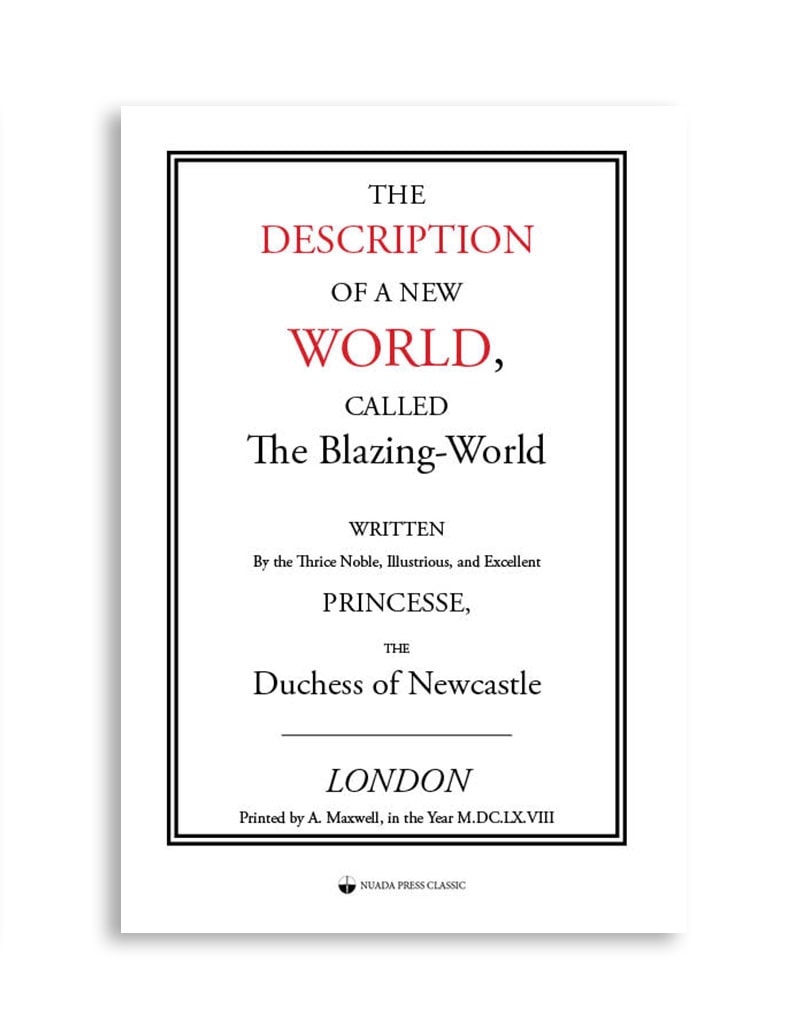
$15.00
New World, Called The Blazing-World
Margaret Lucas Cavendish,
Duchess of Newcastle-upon-Tyne
1623 – 1673
Margaret Lucas Cavendish was an English aristocrat, philosopher, poet, scientist, fiction-writer, and playwright during the 17th century. Born Margaret Lucas, she was the youngest sister of prominent royalists Sir John Lucas and Sir Charles Lucas, who owned the manor of St. John’s Abbey in Colchester. She became an attendant of Queen Henrietta Maria and travelled with her into exile in France, living for a time at the court of the young King Louis XIV. She became the second wife of William Cavendish, 1st Duke of Newcastle-upon-Tyne in 1645, when he was a marquess.
Cavendish has been championed and criticized as a unique and groundbreaking woman writer. She rejected the Aristotelianism and mechanical philosophy of the seventeenth century, preferring a vitalist model instead. She was the first woman to attend a meeting at the Royal Society of London, in 1667, and she criticized and engaged with members and philosophers Thomas Hobbes, René Descartes, and Robert Boyle. She has been claimed as an advocate for animals and as an early opponent of animal testing.
The Blazing World
The Blazing World is a fanciful depiction of a satirical, utopian kingdom in another world that can be reached via the North Pole. It is “the only known work of utopian fiction by a woman in the 17th century, as well as an example of what we now call ‘proto-science fiction’ — although it is also a romance, an adventure story, and even autobiography.”
In the story a young woman enters this other world, becomes the empress of a society composed of various species of talking animals, and organises an invasion back into her world complete with submarines towed by the “fish men” and the dropping of “fire stones” by the “bird men” to confound the enemies of her homeland, the Kingdom of Esfi. The work was published as a companion piece to Cavendish’s Observations upon Experimental Philosophy and functioned as an imaginative component to what was otherwise a reasoned endeavour in 17th-century science.
